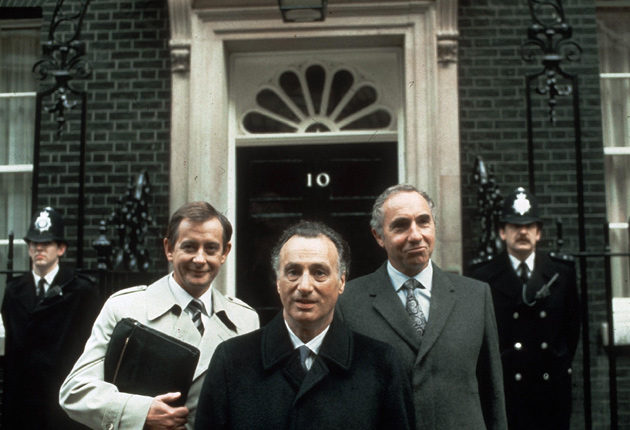Written By: Adel Darwish 5 March 2014
Published: March 7, 2014 Last modified: March 5, 2014
President Barack Obama’s attempts to isolate Russia by freezing all military co-operation and threatening to boycott the next G8 summit in Sochi in response to its armed intervention in Crimea, appeared to be unilateral, as the United States’ European allies show no appetite for imposing sanctions on Moscow.
Britain, supposedly the most reliable partner, is the least able to respond, according to documents held by a Cabinet Office official on his way to Number 10, who accidently exposed it to cameras waiting in Downing Street for just such an opportune moment.
The documents outline Britain’s options in response to Europe’s worst crisis since the end of the Cold War. We should not attend any Nato meetings to consider military actions, nor should we rush into trade sanctions or close financial institutions to the Russians, as this would harm Britain economically. Russian oligarchs invest billions in the City, and in property in wealthy parts of central London. There is also considerable British trade with and investment in Russia.
Britain is not alone in facing this dilemma. Washington and other Western capitals were still determine Moscow’s full intentions as it massed 150,000 troops on the Ukraine borders and the Duma, the Russian parliament, voted to give President Vladimir Putin a free hand in taking military action if necessary.
As Tribune went to press, the Russians had completed the takeover of Crimea with more 16,000 troops.
Vitaly Churkin, Russia’s ambassador to the United Nations, waved a single sheet of paper at Western envoys attending an emergency Security Council meeting. It was a formal request from ousted elected Ukraine President Viktor Yanukovych asking Moscow to deploy troops to establish peace.
Western protestations that Moscow was responding to an imaginary threat fell on deaf ears, as Nato appeared to be unable to what it was set up to do – namely, contain a Russian threat.
But how did we reach this point? The main role of intelligence services is to provide governments with clear and accurate information to avoid a crisis rather, than dealing with its consequences. This is not the first time MI6 and the CIA have been found wanting. Remember Iraq’s invasion of Kuwait 1990 and Russia’s incursions into Georgia 2008. This time it seems they failed to predict how far President Putin was prepared to go to protect what he regards as Russia’s vital interests.
Much of the media and many politicians and media still view Russia through a Cold War prism, which is one reason for sometimes misreading Mr Putin’s intentions.
Russia’s defenders contend that its troops marched into Ukraine to protect the Russian-speaking population. They constitute more than a third of Ukraine’s population and two-thirds of Crimea’s.
The new government in Kiev, which replaced that of the pro-Russian Mr Yanukovych, has excluded ethnic Russians and downgraded the Russian language.
It has called on the United States and the United Kingdom to comply with a treaty designed to protect Ukrainian sovereignty signed by Bill Clinton and John Major (among others) in 1994.
The new Ukraine government has sought to assure ethnic Russians that they will not be treated as second-class citizens and pledged a reshuffle to include opposition figures in the cabinet. But it may be too late for this to sound convincing.
Moscow has long seen Ukraine as a buffer against the West. It is unlikely to be focused on annexing culturally Russian eastern Ukraine and leaving the western part of the country to the European Union. It is Crimea which no Russian leader would ever allow to escape Moscow’s control.
It was Nikita Khrushchev who in 1954 gave the Russian-speaking peninsula to Ukraine, then part of the Soviet Union. He was motivated as much by guilt as the desire to strengthen ties. Millions of Ukrainians died in the great famine, or Holodomor, caused by Josef Stalin, and Mr Khrushchev was keen to make amends.
When the Soviet system collapsed, Ukraine, including Crimea, became an independent sovereign state.
There is no way Moscow will give up its naval base at Sevastopol, the home of its mighty Black Sea fleet and where it has access to warm waters into the Mediterranean through the Bosphorus Strait.
We only have to look at the unstinting support that Mr Putin has given the regime of Bashar al-Assad in Syria in order to protect its only Mediterranean naval base at the Syrian port of Tartus to understand that Russia has absolutely no intention of surrendering its military influence
in Crimea.
Notwithstanding the words of condemnation, there is little the West can do. Germany does not want energy sanctions, as between 30 and 40 per cent of its energy comes from Russia, its largest trade partner.
The cost of oil has gone up by $3 a barrel in the past few days, while the cost of gas has risen by 4 per cent. Energy sanctions would mean further prices hikes, and more bad news for Western economies.
The French, building expensive naval ships for the Russians, will not countenance military trade sanctions. In short, Europe is out of step with the Americans.
Some commentators have warned that such disunity could encourage Mr Putin to act similarly in the future with regard to other former Soviet republics with a sizable Russian minority.
A diplomatic initiative recognising Moscow’s legitimate interests in Crimea, agreeing on election time table for Ukraine, and safeguarding Russian minority interests with their representation in an interim cabinet in Kiev looks to be the best way forward.
